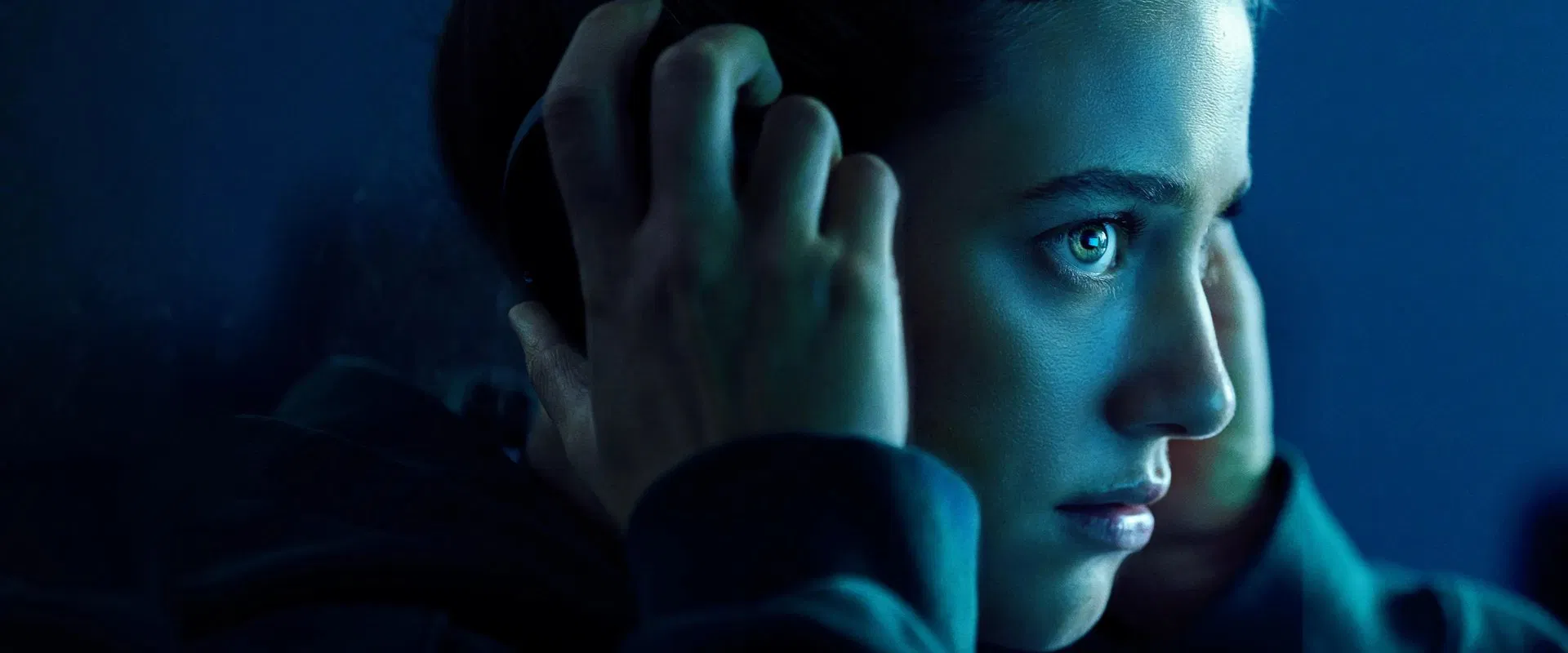From its first, quietly clinical shot—a warehouse of flickering screens and the glazed-over faces behind them—American Sweatshop aims not to shock, but to seep under your skin, repellently but irresistibly, like a light leak in an otherwise airtight coffin. Every so often you see a film that doesn’t just depict the contemporary horror show, it lets you marinate in it. This is one of those.
Let’s dispense with the pleasantries: There’s no reason this movie should work. The title sounds like last year’s disposable Netflix true-crime docuseries, and at times the script—restlessly trying to juggle bleak workplace drama, internet-age noir, and a dash of soapy romance—feels overstretched, like an algorithm that refuses to commit to one niche. Yet, instead of collapsing into self-parody or victim porn, director Uta Briesewitz has whipped up a jolting critique of our digital dystopia, with just enough empathy to keep us pinned to our seats and just enough acidity to make swallowing it feel vaguely indecent.
Lili Reinhart, the not-so-secret weapon here, arrives with that odd burden of being too impossibly luminous for the role—she’s the sort of actress whose bone structure instantly signals Hollywood, even when slumped behind a monitor in a sea of dead-eyed temp workers scrolling TikTok videos for “community safety.” It should be absurd, but somehow, amazingly, it isn’t: Once Reinhart’s Daisy is drawn into the film’s (literal) underbelly—her eyes red, her fingers compulsively twitching over a mouse—she starts to look not glamorous but ghosted. The transformation is so gradual you almost don’t notice it until that late, exquisite dog-hugging scene, which plays like a perverse punchline: after hours policing the internet’s garbage heap, the only halfway human comfort is found in a mute, undemanding animal.
The “sweatshop” of the title isn’t the usual Dickensian warren of child labor but something bleaker: an American office, blandly sanitized, pretending its work isn’t soul-poison. The workers here aren’t sewing up fast fashion, they’re patching the holes in our social fabric, screening out horrors so we consumers can scroll and scroll, numbly unmolested. Is the real hell in the content, or in being paid not to look away? Briesewitz isn’t interested in easy answers or pixelated heroics—you keep waiting for Daisy to Hulk-out and serve justice vigilante-style, like in 8MM or the (superior, grubbier) Red Rooms, but the movie refuses that catharsis. Instead, it drags us through endless, looping cycles of numbness and sick curiosity. By the end, you realize the “mystery” and the “thriller” are red herrings; the real crime here is the world outside—the world that makes jobs like this necessary.
Which brings me to the film’s only real stumble: its tendency to over-serve subplots like a desperate bartender on a slow night. There’s a half-hearted love life, a workplace frenemy (Melchior, wasted), and whole phone calls with Paul (the reliably jittery Jeremy Ang Jones) and his mother that seem less like character beats than deleted scenes from some EAP’s “mental health in the workplace” PSA. They exist, presumably, so we don’t think too hard about the sheer volume of human depravity the job exposes—because honestly, that's where the film gets scary. It’s not just what Daisy and the others see. It’s the monstrous math. Every video flagged, every dark-web upload, is the offal scraped off by another faceless content moderator—so we can sip our coffee and doomscroll in innocence.
People want to compare this to Red Rooms—which was colder, crueler, and, yes, closer to masterpiece territory—but that’s a red herring too. American Sweatshop is not interested in grand gestures or final girls or mythic victories. What it does, deceptively quietly, is thread a question through every shot: Why are YOU watching this? Why do we need to be protected from evil, and why do we keep coming back for another hit of it, secondhand?
For all its chill, the direction is almost classical in its discipline: sterile offices, antiseptic color palettes, sound design that hums relentlessly, like a migraine… There’s nothing accidental, nothing lazy. Occasionally, it strains for significance—there are themes in the margins that never connect, and Briesewitz can’t resist stuffing in touches she should have left behind. But the cumulative effect is a film that creeps into your spine and lingers, shifty and unclean.
I have to say, though—I can’t shake a certain dumbstruck horror, not at the characters, but at the real world behind them. Why on earth do we need armies of human beings, grinding through the worst humanity has to offer, so we can keep our online worlds “safe”? Why are there so many sick bastards out there, doing things that can’t even be named? By the time Daisy heads home to her dog, blinking in the gray light, I was queasy with the sense that we’re all implicated—not just as audience, but as participants in the endless, low-rent psychodrama of internet age anomie.
Not a perfect film, but an urgent, disturbing one—a punch below the belt to our collective sleepwalking. It left me unsettled, darkly impressed, and almost moved. If only all “issue movies” showed half as much style, and an ounce of the honest revulsion. American Sweatshop may not quite be a classic, but it’s a neon-lit pit stop on the road to something better, or worse.
The next time you scroll by a video flagged “sensitive content,” spare a thought for Daisy and her dog. And maybe—just maybe—ask yourself what you’re hoping to find when you look into that digital abyss.
By the time it’s over, you may want to hug your own dog—or at least hurl your phone out the nearest window. That’s as close to catharsis as this movie will let you get.


